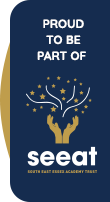Assessment
Holt Farm Junior School wants each of their pupils to make the best possible progress during their time in the school. Our aim is that all children will leave Holt Farm prepared for secondary school and beyond.
Why Assess?
Assessment is at the heart of teaching and learning. It provides evidence to guide teaching and learning and the opportunity for children to demonstrate and review their progress. Children’s progress is closely monitored at Holt Farm Junior School in order that we can provide the best possible opportunities and highest levels of support for all children. All assessment activities aim to ensure that the children are able to make excellent progress in their learning whilst taking into account the needs of individual children. The aims and objectives of assessment in our school are:
- to enable our children to demonstrate what they know, understand and can do in their work;
- to allow teaching teams to plan work that accurately reflects the needs of each child;
- to help our children understand what they need to do next to improve their work;
- to provide regular information for families that enables them to support their child’s learning;
- to contribute towards accountability data.
Aims of the National Curriculum
Following the announcement, by the Department for Education, of the removal of levels for the attainment and progress of children (2013) and the relaxation of restrictions on centrally led reporting requirements (Department for Education and Gibb, 2015 and Ofsted, 2015), schools have now been given the opportunity to conduct more ‘assessment of the right kind’, to offer task specific, personalised feedback and to become ‘Assessment Professionals’ by creating an assessment system that supports the learning of the individual children in their school. (Tim Oates, Chair of the expert panel for NC review).
Ofsted has stated the following:
- Ofsted recognises that marking and feedback to children, both written and oral, are important aspects of assessment. However, Ofsted does not expect to see any specific frequency, type or volume of marking and feedback; these are for the school to decide through its assessment policy. Marking and feedback should be consistent with that policy, which may cater for different subjects and different age groups of children in different ways, in order to be effective and efficient in promoting learning.
- Ofsted does not expect performance and pupil-tracking data to be presented in a particular format. Such data should be provided to inspectors in the format 3 that the school would ordinarily use to track and monitor the progress of children in that school.
(Ofsted inspections – clarification for schools, March 2015, No. 140169)
Assessment at Holt Farm Junior School
Staff at Holt Farm Junior School have worked together to develop an assessment system that takes into account the criteria of the new National Curriculum, whilst providing a greater focus on deepening children’s understanding and learning. Assessment recognises children’s strengths, as well as areas that need support. The most important factors are how effectively the curriculum is taught and assessed, that we check our children’s understanding effectively and identify and correct misconceptions and use our assessment to inform our teaching. We believe effective assessment helps our children embed skills and knowledge to use it fluently across a range of areas, assisting us to produce clear next steps for our children. We do this by finding out what our children already know, so we can build on this, unpicking misconceptions, assessing throughout lessons and learning and providing effective feedback to progress and move learning forward. Our assessment consists mainly of formative strategies and a range recording methods, as detailed below.
Types of Assessment
Formative Assessment:
This is the ongoing assessment carried out by teachers both formally and informally during learning. The results of formative assessments have a direct impact on the teaching materials and strategies employed immediately following the assessment. Formative assessment is overwhelmingly our focus and where the greatest benefits in learning lie. Teachers use a variety of strategies that help to inform them of their children’s current level of understanding and progress at the outset of; within and at the end of a lesson/unit.
Assessment for Learning includes:
- Inquiry based learning opportunities (observations can be made)
- Low-stake quizzes
- Use of individual whiteboards
- Knowledge harvest at the beginning and end of a unit/topic ‘What I know already- What I know now’
- Half termly Writing Journeys where children’s independent writing is moderated and judgements made
- Work scrutiny
- Targeted questioning
- On the spot live feedback and assessment
- Providing regular opportunities for children to reflect on their learning and next steps. This includes: responding to deep marking (which links to success criteria), verbal feedback, self and peer assessment opportunities (see our feedback policy for further information)
- Science: each child carries self-assesses against ‘Working Scientifically’ statements throughout the year as well as self-assessing statements for each unit of work e.g electricity by RAG rating (Red- not secure, Amber- beginning to and Green- secure). Teachers confirm whether evidence confirms this judgement.
- PSHE: Each child reflects on their learning by completing a self-assessment sheet at the end of each lesson. They also have the opportunity to identify a next step target. Teachers confirm these judgements. Teachers also complete individual assessment sheets for each child where judgements are made (this includes social/emotional and skills/understanding shown). Teachers may record additional comments to include evidence/observations. Individual records will travel with the child through the school.
Summative Assessment
These formal summative tests occur throughout the year and are recorded. This includes:
Reading:
- Half termly Star Reading Tests (this provides a reading age and standardised score)
- Termly NFER reading assessments (Yr 3-6) and previous End of Key Stage 2 SATS for Year 6
GPS:
- Entry and exit spelling test which includes 20 words from the spelling rules being taught over the half term.
- Termly NFER GPS assessments (Yr 3-6) and previous End of Key Stage 2 SATS for Year 6.
Writing:
- Half-termly Writing Journeys where children’s independent writing is moderated and judgements made
- Ongoing assessments of the children's writing from the planning stage, drafting, editing and publishing.
Maths:
- Entry and Exit Point White Rose Assessments for each unit of work
- Weekly times table assessments (Superhero). The entry and exit scores are recorded at the beginning and end of each term (to monitor impact)
- Arithmetic Test (Yr 3-5 fortnightly/Yr 6 weekly)
- Termly White Rose maths assessments (Yr 3-6) and previous End of Key Stage 2 SATS for Year 6.
- Statutory Year 4 Times Table Check. The purpose of the MTC is to determine whether pupils can recall their times tables fluently, which is essential for future success in mathematics. It will help teachers to identify pupils who have not yet mastered their times tables, so that additional support can be provided.)This is administered in June)
Assessment in the Wider Curriculum
Teachers complete assessments across wider curriculum subjects to determine whether children are ‘secure’ in their knowledge. They use a range of methods, including, quizzes, tangible work and responses to inquiry questions. This evidence is used to inform the teacher judgements and this assessment data is recorded using Target Tracker.
End of Key Stage 2 Assessments (SATS)
Children in Year 6 are assessed during May, these statutory assessment tests include Reading, GPS (Grammar, Punctuation and Spelling) and Maths papers. The results of these assessments are shared with the families where they are informed if their child has met age-related expectations at the end of this key stage. Year 6 teachers also report their judgements based on their Teacher Assessments too; all data and assessments are shared with secondary schools as part of their transition.
Assessment Moderation
Staff CPD meetings and INSET sessions are used for assessment moderation to ensure that all teachers have a shared understanding of assessment practices and that there is consistency across the year groups and school. Moderation is also carried out with other schools across SEEAT (Rochford Primary School, Prince Avenue Primary School, Westborough Primary, Hadleigh Primary School) and other Local Authority schools.
Tracking Attainment and Progress with Steps
Target Tracker is used for all curriculum subjects and this pupil progress tracking and assessment software enables teachers and leaders to make sense of the data by identifying gaps in learning and use this to make genuine impact. During the school year it is expected that children will make at least 6 steps of progress. Attainment is also tracked so that children working below, working at and working at greater depth can be identified every half term too.
Data Analysis
Subject Leaders, Year Group Leaders, the Assessment Lead and the Headteacher use the class teacher entries on Target Tracker to carry out an analysis of the data each term. Powerful, formative analysis reports allow strengths and areas of development for individuals or groups to be identified. By making sense of the data staff use this analysis to deliver the best outcomes. This information is used to inform:
- Termly Pupil Progress Meetings (where additional support, interventions and actions are set to support children who are not making expected progress, to consider vulnerable learners and any additional support that may be required and inform future planning). This includes the class teacher and members of the Senior Leadership Team.
- Subject Leaders who use their analysis to track progress and coverage of their subject. Key learner groups are identified (gender, SEND, Pupil Premium, Non- Pupil Premium, Greater Depth etc) This informs action planning and next steps for their subject to further improve.
- School Self-Evaluation
- School Improvement Plan
- Subject Leader Action Planning i.e. staff training needs and identifying less developed areas that need improvement.
- Headteacher reports to Governors and SEEAT
- Appraisal
SEND (Special Educational Needs and Disabilities)
Children with Special Educational Needs and/or Disabilities may be working below year group expectations. In these cases, work will be adapted and/or differentiated to allow children to access learning appropriate for them; this learning will be assessed according to their stage of development. Regular and on-going assessment of the impact of any interventions is essential to measure their impact.
Reporting to Parents
During the first half term, teachers meet with parents/carers and their child as part of a ‘Learning Conversation’. The meeting provides an opportunity to discuss how their child has settled in their new class, their progress and to set targets that link to the HFJS Values (Hardworking, organised, listeners, team players, focused, ambitious, respectful and motivated).
Towards the end of the spring term, our second ‘Learning Conversation’ takes place. Once again parents/carers and the child meet with their class teacher to discuss progress, attainment, learning behaviours and to reflect on targets so far.
During the year, parents receive a written attainment and progress update, as well as a full written report at the end of the summer term.
The reports are written in a clear, straightforward manner and are personal to the child. They inform parents/carers of:
- How their child is performing in relation to national standards
- How their child is making progress from their starting point
- Their child’s learning behaviour, including effort grades
- Their child’s strengths and any particular achievements.
- Areas of development and improvement
- Whether the child is happy, settled and behaving well.
- Attendance report
- Targets for the next academic year
Transition
At the end of the summer term, handover sessions are organised between the current and future teachers in order to ensure smooth transition and on-going progression. Transition meetings and activities also take place between our infant feeder school (Holt Farm Infants School) as well as the Year 2 teachers from other schools. At the end of Year 6, meetings are held between the local secondary schools and Year 6 teachers to ensure a smooth transition into Key Stage 3 too.





